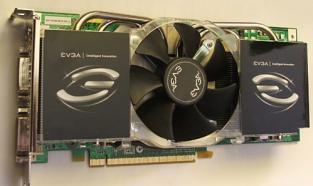OOPS! You forgot to upload swfobject.js ! You must upload this file for your form to work.
Singapore developers promise eternal batteries
![]()
|
xtreview is your : Video card - cpu - memory - Hard drive - power supply unit source |
|
|||
|
|
||||
 Recommended : Free unlimited image hosting with image editor
Recommended : Free unlimited image hosting with image editor
|
POSTER: computer news || SINGAPORE DEVELOPERS PROMISE ETERNAL BATTERIES |
DATE:2014-10-14 |
|
|
A team of scientists from Singapore's Nanyang Technological University announces the development of improved lithium-ion batteries. Batteries - a sore spot in today's mobile electronics. Charged for a long time, are discharged quickly and more quickly lose the ability to accumulate a charge - reloading. The best examples of modern lithium-ion batteries can withstand up to 500 discharge cycles without significant capacity degradation , and mass - 200-250 cycles. Scientists from Singapore's claim that their development can withstand up to 10 thousand discharge cycles, which is 20 times more. Another important feature of the design is the ability to get up to 70% capacity in just two minutes. Imagine, instead of waiting hours near an outlet device is ready for full operation of the batteries almost immediately. New properties of the batteries gave anode of titanium dioxide nanotubes. Traditional graphite anode has a limited area for contact with the reactants. Nanotubes with their hollow structure in this plan are just a huge area for the contact, which causes a high rate of charge and the ability to withstand the stunning currents for a short period of time. | ||
|
|
||
|
xtreview is your : Video card - cpu - memory - Hard drive - power supply unit source |
|
|
|
|
||
|
Xtreview Support  N-Post:xxxx Xtreview Support        |
SINGAPORE DEVELOPERS PROMISE ETERNAL BATTERIES |
| Please Feel Free to write any Comment; Thanks  |
NVIDIA is among the top three out-of-the-box developers of microchips in terms of revenue (2017-08-17)
For the third season of Rainbow Six Siege, developers will release a 26 GB patch on PC (2017-08-08)
Developers Borderlands announced a new competitive first person shooter (2017-08-08)
Intel platforms for developers of compact systems did not take root in the market (2017-06-22)
Developers Friday the 13th The Game give players DLC as compensation for problems with multiplayer (2017-06-21)
Developers accelerate the development of PCI Express 5.0 specifications (2017-06-11)
The principles of working with crypto-currencies will be adopted by the developers of autopilot (2017-05-24)
ELEX role-playing game from Gothic developers is revealed in new video (2017-04-24)
Developers of hybrid airliners promise to make flights shorter and cheaper (2017-04-06)
Oculus Touch documentation is available for game accessories developers (2017-03-15)
Mass Effect Andromeda went to press, the developers have published system requirements (2017-02-27)
Fallout Shelter Developers working on a new mobile game (2017-02-20)
The developers of the game Apocalypse Now canceled raising money on Kickstarter (2017-02-15)
At the end of February, AMD has scheduled an event for developers (2017-02-14)
ARM believes that support for emulation developers x86 is not bad (2017-01-14)
Star Citizen developers refused to use CryEngine engine (2016-12-26)
Warhammer 40,000 Dawn of War III Developers spoke about the importance of video game (2016-12-21)
Developers Dreamfall Chapters announce the timing of the game on the Xbox One and PlayStation 4 (2016-12-05)
Vampyr developers talked about the game (2016-11-17)
One of the motherboards developers based on AMD ARM-processor pursue failure (2016-10-24)
![]()
To figure out your best laptops .Welcome to XTreview.com. Here u can find a complete computer hardware guide and laptop rating .More than 500 reviews of modern PC to understand the basic architecture


7600gt review
7600gt is the middle card range.
We already benchmarked this video card and found that ...

 geforce 8800gtx and 8800gts
geforce 8800gtx and 8800gts  Xtreview software download Section
Xtreview software download Section  AMD TURION 64 X2 REVIEW
AMD TURION 64 X2 REVIEW  INTEL PENTIUM D 920 , INTEL PENTIUM D 930
INTEL PENTIUM D 920 , INTEL PENTIUM D 930  6800XT REVIEW
6800XT REVIEW  computer hardware REVIEW
computer hardware REVIEW  INTEL CONROE CORE DUO 2 REVIEW VS AMD AM2
INTEL CONROE CORE DUO 2 REVIEW VS AMD AM2  INTEL PENTIUM D 805 INTEL D805
INTEL PENTIUM D 805 INTEL D805  Free desktop wallpaper
Free desktop wallpaper  online fighting game
online fighting game  Xtreview price comparison center
Xtreview price comparison center Lastest 15 Reviews


Rss Feeds
Last News
- The new version of GPU-Z finally kills the belief in the miracle of Vega transformation
- The motherboard manufacturer confirms the characteristics of the processors Coffee Lake
- We are looking for copper coolers on NVIDIA Volta computing accelerators
- Unofficially about Intels plans to release 300-series chipset
- The Japanese representation of AMD offered monetary compensation to the first buyers of Ryzen Threadripper
- This year will not be released more than 45 million motherboards
- TSMC denies the presentation of charges from the antimonopoly authorities
- Radeon RX Vega 64 at frequencies 1802-1000 MHz updated the record GPUPI 1B
- AMD itself would like to believe that mobile processors Ryzen have already been released
- AMD Vega 20 will find application in accelerating computations
- Pre-orders for new iPhone start next week
- Radeon RX Vega 57, 58 and 59: the wonders of transformation
- ASML starts commercial delivery of EUV-scanners
- The older Skylake processors with a free multiplier are removed from production
- Meizu will release Android-smartphone based on Helio P40
- AMD Bristol Ridge processors are also available in American retail
- The fate of Toshiba Memory can be solved to the next environment
- duo GeForce GTX 1080 Ti in GPUPI 1B at frequencies of 2480-10320 MHz
- New Kentsfield overclocking record up to 5204 MHz
- Lenovo released Android-smartphone K8

HALO 3 HALO 3 - Final Fight!

PREY Prey is something you don t often see anymore: a totally unigue shooter experience.

computer news computer parts review Old Forum Downloads New Forum Login Join Articles terms Hardware blog Sitemap Get Freebies


